Every athlete knows that success in sports isn’t just physical—it’s mental. Whether you’re competing in collegiate athletics, professional leagues, or extreme sports, your mindset can determine your performance. Sports psychology focuses on helping athletes build confidence, manage anxiety, recover from setbacks, and maintain focus under pressure.
At Healing Stones Therapy, we specialize in empowering athletes to master both the mental and emotional aspects of performance. Our integrative approach combines evidence-based therapies like REBT (Rational Emotive Behavior Therapy) with holistic methods, giving you the tools to stay mentally sharp and emotionally resilient.
Developed by psychologist Albert Ellis, REBT teaches that our thoughts—not events—shape our emotions and behaviors. Using the ABC Model, we can break this down:
By learning to identify and challenge irrational beliefs, athletes can replace negative thought patterns with empowering ones. At Healing Stones Therapy, we help athletes transform self-defeating beliefs into productive self-talk, promoting resilience and consistent performance.
Visualization, also known as mental imagery, is one of the most powerful tools in sports psychology. Research shows that the brain activates similar neural pathways during visualization as it does during physical performance.
Through guided imagery and mindfulness-based techniques, we teach athletes to:
When paired with REBT, visualization becomes even more potent, reinforcing rational, confident thinking while building a stronger emotional foundation for competition.
At Healing Stones Therapy, we go beyond traditional performance coaching. We integrate energy-balancing practicesand therapeutic support to help athletes feel grounded, focused, and emotionally balanced.
Our sessions may include techniques such as:
This holistic approach allows athletes to recover faster, manage stress, and maintain peak focus, not just in sports but in life. Whether you’re navigating the pressures of collegiate competition or pushing limits in extreme sports, our methods can help you achieve mental balance and sustained performance.
We proudly support athletes from all backgrounds, from collegiate and professional teams to individual extreme sports competitors. No matter your sport or skill level, our mission is to help you harness your inner strength, overcome mental barriers, and perform at your best both on and off the field.
Your next level begins with your mindset.
Discover how Healing Stones Therapy can help you combine sports psychology, REBT, and holistic healing to reach your full potential.
Contact us to learn more or schedule your first session today.
Achieving peak athletic performance requires both physical conditioning and a strong mental game. You may be searching for sports psychology near me to help enhance your focus, confidence, and mental resilience during competitions. Healing Stones Therapy offers tailored sports psychology programs designed to support athletes across Wyoming, Utah, Nevada, and Oklahoma. Whether you train in person in Laramie or prefer virtual sessions, our comprehensive approach integrates cognitive behavioral techniques, nutritional guidance, and personal training to help you perform at your best.

Focusing on factors within your control is a fundamental part of mental preparation. Cognitive Behavioral Therapy (CBT) techniques can teach you how to shift attention away from unproductive worries toward actionable elements of your performance. You will learn strategies to break down overwhelming challenges into manageable tasks, which builds confidence gradually. These techniques help reformulate negative thought patterns by focusing on positive, controllable aspects. Over time, this strengthens your mindset and improves your ability to handle pressure in competitive situations.
Through a customized program, you can develop a clearer understanding of the mental processes affecting your performance. The goal is to increase your confidence by consistently reinforcing successful behaviors and thought patterns. Healing Stones Therapy provides tools to help you stay present, set realistic goals, and remain adaptable during both practice and competition. You’ll gain an empowering perspective that enhances mental toughness, creating a foundation for sustained athletic progress.
By working closely with you to apply CBT-based methods, the program supports lasting mental skill development. Confidence built on practical, controllable elements translates directly into improved focus and performance outcomes. This evidence-based approach ensures that you’re making steady progress in mastering your mind as a vital component of your athletic success.
Negative self-talk can undermine even the most talented athlete’s confidence and focus. Recognizing and addressing these unhelpful internal dialogues is essential for optimal performance. Healing Stones Therapy guides you through identifying anxious thoughts and fears that distract or sabotage your efforts. Once these are understood, tailored interventions help manage and transform them into constructive narratives. This process reduces performance anxiety and fosters calmness during high-stakes situations.
Anxiety and fear often manifest as physical symptoms that drain energy and concentration. Through mental skills training combined with relaxation techniques, you can learn to control physiological responses to stress. Controlling breathing, muscle relaxation, and mindfulness practices complement the psychological work by bringing your body into harmony with your mental state. This holistic approach ensures that anxiety does not interfere with your ability to execute skills under pressure.
Dealing directly with fears around failure or judgment enables you to regain control and maintain focus on your goals. The supportive environment encourages honest exploration of these feelings without judgment and builds resilience to setbacks. Addressing these mental barriers reconstructs your self-belief and keeps you mentally prepared for competition demands.
Optimal mental performance is closely linked to physical health and nutrition. Healing Stones Therapy integrates nutritional support designed to fuel your body and mind effectively for training and competition. You’ll receive guidance tailored to your specific sport, level, and energy needs to enhance endurance and recovery. Proper nutrition supports cognitive function, mood stability, and overall well-being, all of which improve mental sharpness and performance consistency.
Personal training within the program focuses on aligning physical conditioning with your athletic objectives. Coordinated exercise plans work in tandem with mental training to develop both the physical and psychological skills needed for success. This integration ensures that your workout routines not only build strength and stamina but also promote mental resilience when facing challenges. Consistent training routines, coupled with nutrition, create a comprehensive support system for your competitive efforts.
By connecting dietary habits and physical training with your mental strategies, Healing Stones Therapy offers a synergistic approach. This combination allows you to reach your performance potential more reliably and sustainably. The holistic design ensures that all facets of your athletic development reinforce each other.
Convenient access to sports psychology services is important for ongoing progress and consistency. Healing Stones Therapy provides both in-person and virtual options to meet your needs across several locations. You can benefit from expert support whether you’re training near Reno, Cheyenne, St. George, or Stillwater. This flexibility enables you to integrate mental skills coaching seamlessly with your physical training schedule.
Local availability means you can develop a direct, personal relationship with your therapist or coach when in person. For those who prefer or require remote sessions, virtual consultations maintain the same level of personalized care and tailored planning. Accessibility across multiple states ensures that athletes from youth to professionals can access specialized support regardless of geographic challenges.
The ability to combine face-to-face and online services offers adaptability to meet your evolving circumstances or travel commitments. Healing Stones Therapy prioritizes your convenience to support consistent engagement, which is critical for sustained performance improvements. Each location serves as a hub for advancing mental performance strategies alongside your physical preparation.
Enhancing your mental game through sports psychology is a critical step toward unlocking your full athletic potential. Whether your goal is to build confidence, manage anxiety, improve nutrition, or integrate personal training with mental skills, Healing Stones Therapy provides a comprehensive, evidence-based approach. You are invited to book a consultation online or by phone to start a program tailored specifically to your needs. Taking this step puts you on the path to developing the mental resilience and peak performance you seek in your athletic endeavors.
In today’s fast-paced world, individuals are increasingly seeking comprehensive approaches to maintain and improve their well-being. Holistic wellness, which considers the whole person—mind, body, and spirit—addresses lifestyle-induced ailments and enhances overall quality of life. This approach combines psychotherapy, nutritional support, and physical wellness, backed by scientific evidence to ensure efficacy.
Psychotherapy plays a crucial role in holistic wellness, especially in addressing mental health challenges like anxiety and disordered eating linked to body image insecurities. Two effective modalities include:
Cognitive Behavioral Therapy (CBT): CBT is a well-established, evidence-based approach that helps individuals identify and reframe negative thought patterns. It's particularly effective for anxiety and body image insecurities by providing tools to manage distressing thoughts and unhealthy eating behaviors (Shafran et al., 2013).
Acceptance and Commitment Therapy (ACT): ACT encourages individuals to accept their thoughts and feelings rather than fighting or feeling guilty for them. Focusing on mindfulness and values-based action, it empowers individuals to make life-enhancing choices despite anxiety or body image concerns (Hayes et al., 2006).
Nutrition plays a pivotal role in holistic wellness, providing the necessary fuel for both physical and mental health.
Balanced Nutrition for Mental Health: A diet rich in whole grains, fruits, vegetables, and lean proteins supports mental health. Research indicates that certain nutrients, such as omega-3 fatty acids, are crucial in managing anxiety and supporting overall brain health (Sarris et al., 2015).
Nutritional Interventions for Disordered Eating: A focus on balanced nutrition and mindful eating can help individuals develop healthier relationships with food. Nutritional counseling can guide individuals in making sustainable dietary changes that support both physical health and psychological well-being (Wilson et al., 2010).

Physical activity is an integral component of holistic health, offering numerous benefits for both mind and body.
Exercise for Mental Health: Regular physical activity improves mood, reduces anxiety symptoms, and supports a positive body image. Exercise releases endorphins and enhances cognitive functioning, acting as a natural antidepressant and stress reliever (Mikkelsen et al., 2017).
Integrating Mindful Movement: Practices such as yoga and tai chi, combining physical movement with mindfulness, promote mental clarity and emotional regulation. These activities help reduce stress and anxiety, contributing to a more balanced and fulfilling life (Wang et al., 2010).
Integrating psychotherapy, nutritional support, and physical wellness offers a powerful framework for holistic wellness.
Personalized Treatment Plans: Tailoring therapy, diet, and exercise interventions to an individual’s specific needs and preferences ensures better outcomes and enhances adherence.
Collaborative Care: Health practitioners, including therapists, dietitians, and fitness experts, should collaborate to provide comprehensive care that addresses all facets of wellness.
Sustainable Lifestyle Changes: Encouraging gradual and sustainable lifestyle modifications helps individuals maintain long-term health benefits and improve their quality of life.
Embracing holistic wellness through psychotherapy, nutritional support, and physical wellness can transform lives. By focusing on the interconnectedness of mind, body, and spirit, individuals can overcome challenges such as anxiety and body image insecurities, unlocking their full potential for a balanced and fulfilling life.
Hayes, S. C., Luoma, J. B., Bond, F. W., Masuda, A., & Lillis, J. (2006). Acceptance and Commitment Therapy: Model, processes, and outcomes. Behaviour Research and Therapy.
Mikkelsen, K., Stojanovska, L., Polenakovic, M., Bosevski, M., & Apostolopoulos, V. (2017). Exercise and mental health. Maturitas.
Sarris, J., Logan, A. C., Akbaraly, T. N., et al. (2015). Nutritional medicine as mainstream in psychiatry. The Lancet Psychiatry.
Shafran, R., Frampton, I., & Fairburn, C. G. (2023). Cognitive-behavioral therapy for eating disorders. Eating Disorders in Children and Adolescents.
Wang, C., Bannuru, R., Ramel, J., Kupelnick, B., Scott, T., & Schmid, C. H. (2010). Tai Chi on psychological well-being: Systematic review and meta-analysis. BMC Complementary and Alternative Medicine.
Wilson, G. T., Grilo, C. M., & Vitousek, K. (2010). Psychological treatment of eating disorders. American Psychologist.
Trauma can shape how we see ourselves, others, and the world. For many, it lingers not just in the mind, but in the body—impacting relationships, emotions, physical health, and overall well-being. At Healing Stones Therapy, we believe that healing is possible when care is compassionate, intentional, and trauma-informed.
If you're located in Ft. Collins or Colorado Springs, we’re honored to offer trauma-focused services, including EMDR and somatic therapy, to support your path to healing.
What Is Trauma-Informed Treatment?
Trauma-informed care acknowledges that many people have experienced trauma—whether through abuse, loss, chronic stress, or life-threatening events—and that these experiences affect the way we think, feel, and relate to others.
A trauma-informed therapist works from a place of:
Safety – Creating a space where you feel grounded and secure
Empowerment – Honoring your choices and voice in your healing journey
Compassion – Recognizing the strength it takes to seek help and move forward
Understanding – Respecting how trauma may show up uniquely in your life
EMDR: A Pathway to Processing and Relief
EMDR (Eye Movement Desensitization and Reprocessing) is a powerful therapy designed to help individuals process traumatic memories that are stuck or unresolved. It’s not talk therapy in the traditional sense—instead, it uses bilateral stimulation (like guided eye movements or tapping) to help the brain reprocess distressing memories so they no longer feel overwhelming.
Research has shown EMDR to be highly effective for PTSD, anxiety, and other trauma-related symptoms. Clients often report feeling a sense of relief, clarity, and increased emotional resilience after sessions.

Somatic Therapy: Listening to the Wisdom of the Body
Trauma lives not just in memory—but in the nervous system. Somatic therapy helps you reconnect with your body’s natural rhythms, sensations, and signals. Through gentle body-based techniques like grounding, breathwork, movement, and mindfulness, somatic therapy can help regulate the nervous system, release stored tension, and restore a sense of safety within your own body.
Serving Colorado with Compassionate Trauma Care
Healing Stones Therapy proudly serves clients in Ft. Collins, Colorado Springs, and throughout Colorado through secure, confidential online sessions. Whether you’re seeking support for recent trauma, complex PTSD, anxiety, or just feel stuck and disconnected, our team of trauma-informed therapists is here to walk alongside you.
Begin Your Healing Journey
You are not broken. You are not alone. Healing is possible—and we’re here to help you access the inner wisdom and strength that’s already within you.
Ready to learn more about EMDR or trauma-informed therapy in Colorado? Contact us today to schedule a consultation or ask about availability with one of our therapists.
Disordered eating doesn’t always look the way you might expect. For many students in Northern Nevada—especially in Reno—and in Stillwater, Oklahoma, it often hides behind socially accepted behaviors like skipping meals to “eat clean,” obsessively logging calories, counting macronutrients, or exercising to burn off a meal. These patterns often start with the intention to be healthy but quickly become sources of guilt,
anxiety, and stress.
If you find yourself constantly thinking about food, avoiding social events because of meals, or feeling like you need to "earn" your food through exercise, you’re not alone. These signs point to a deeper disconnect between your body and your sense of self-worth. You can break this cycle. Healing your relationship with food and your body is possible, and it doesn’t involve another diet or fitness plan.

Diet culture tells you that being thinner means being healthier, happier, and more successful. It praises self-control, discipline, and restriction. But what it doesn’t tell you is the emotional cost of living this way.
As a student navigating life in places like Reno or Stillwater, you’re balancing classes, work, and social life. The pressure to maintain a certain appearance can lead to habits that feel "healthy" on the surface but are actually harmful to your internal body. You might start skipping meals, avoiding foods you once loved, or tying your self-worth to your body image.
One of the most harmful beliefs diet culture pushes is that you need to earn food and you don't deserve to enjoy food. Maybe you’ve felt like you shouldn’t eat because you didn’t work out that day. Or you ate something "bad" and felt like you had to make up for it. This mindset leads to guilt and fear around food.
Instead, food can become a source of nourishment and connection. Your body has signals—hunger, fullness, satisfaction—that guide how much and when to eat. Ignoring those cues in favor of external rules disconnects you from what your body actually needs. Therapy offers a path to relearning how to listen to and trust those cues again.
It’s hard to feel confident in your body when every ad, post, or influencer implies that you should look different—as if something is wrong with you for not fitting society’s idea of the perfect body." But your body doesn’t need to be changed to be worthy. You deserve respect and care just as you are. When we come from this place of compassion and acceptance then we make steps to honor our physical body more
Therapy can help you explore where body image struggles began and how they’ve been reinforced. By challenging unrealistic standards and reframing your internal narrative, you can start to feel safer in your own skin.
The dieting industry is worth billions. That’s no coincidence. Diets promise control, results, and transformation—but only if you follow their rules. When the diet doesn’t work long-term, the blame falls on you, not the system.
This cycle leads to frustration and even more restrictive behavior. Diets lead to fluctuations in weight and over time research suggest individuals gain weight over time. The key to heal is to learn intuitive eating and listen to your amazing body which is your expert in finding your optimal weight. Once this is attained you will move better, have more energy, and have improved cognition. But wellness isn’t something you can buy or hack. True well-being includes your mental health, your relationship with food, and your ability to be present in your life. Therapy creates space to reject these external pressures and build habits that actually support your overall health.
Exercise and nutrition don’t need to be tools for punishment. Movement can be about joy, release, and energy—not shrinking your body. Nutrition can be about how food feels, tastes, and supports your focus and energy—not about sticking to a rigid plan.
Therapy guides you toward creating a relationship with movement and food that fits your life. No strict meal plans or exercise rules. Just curiosity, flexibility, and self-compassion.
You may have spent years thinking your body was the problem. The truth is, your body has always been trying to communicate with you. It’s time to start listening.
Reconnection happens through small moments: choosing to rest when you’re tired instead of pushing through, allowing yourself a meal that brings comfort, or letting movement feel playful instead of punishing. Therapy supports you in noticing these shifts and building on them.
Therapeutic work at Healing Stones Therapy is personalized and non-judgmental. Students from communities across Northern Nevada and the Oklahoma area, often carry a heavy mix of stress, perfectionism, and confusion when it comes to food and body image. Our approach focuses on helping you feel understood, not pathologized.
Sessions may explore your relationship with control, how food rules started, and how your body story has evolved. You’ll work toward feeling safer in your body and more confident in the choices you make for your health. The goal isn’t perfection. It’s connection. We offer nutritional and psychotherapy support as part of a holistic approach to enhance healing and promote lasting well-being.
If these sound familiar, you’re not alone. Many students in the Mountain West struggle with these thoughts and behaviors but don’t realize there’s another way to live.
Healing doesn’t happen overnight. But each step toward rejecting diet culture creates more room for joy, freedom, and presence in your life. Therapy helps you clarify what health means for you—on your terms.
You can learn to:
These aren’t lofty goals—they’re entirely possible when you have the right support.
If you’ve been waiting for the right time to get help, this is it. You deserve to feel at home in your body and at peace with food. Healing Stones Therapy in Jackson Hole offers a place to begin that process.
Start your journey today by scheduling an appointment here. Therapy isn’t about fixing you—it’s about reconnecting with yourself. You already have the wisdom inside you. Let’s uncover it together.
Trauma doesn't pause at county lines or stop at state borders. It follows you across life transitions, into new jobs, through parenting challenges, and into the quiet moments when no one else is watching. If you're carrying unresolved trauma in your day-to-day life, you're not alone—and you don’t have to manage it by yourself.
Whether you're based in Jackson Hole, live in the heart of St. George, or work long shifts in Reno or Las Vegas, your story matters. You deserve care that fits your needs, your schedule, and your pace. Healing Stones Therapy, LLC offers counseling options built to meet you right where you are—so you can begin the healing process with care that’s accessible and responsive to your needs.
Trauma isn’t one-size-fits-all. It may come from a single event, like a car accident or loss. Or, it might result from years of high-pressure work, emotional neglect, or unresolved childhood pain. You might be navigating grief, burnout, or PTSD. And even if your experiences feel invisible to others, they are very real.
Counseling that acknowledges your story, your context, and your pace can make all the difference. Through our counseling sessions, you can expect personalized care that honors your experiences—whether you're managing anxiety from career stress, overcoming emotional wounds from past abuse, or trying to rebuild after a relationship breakdown.
Licensed therapists work with you to understand your emotional, mental, and physical responses to trauma. By focusing on your individual needs, you receive a care plan that respects who you are and where you've been—no matter which state you call home.

Finding support shouldn’t require driving hours from your home or waiting weeks for an in-person appointment. That’s where virtual counseling comes in. Whether you’re in a rural Wyoming town, commuting through Nevada, or living in Utah’s Wasatch Front, online therapy creates a direct path to consistent care.
You don’t need to leave work early or rearrange your entire day. Online counseling can happen from your home, your car during a lunch break, or anywhere you feel safe and grounded. These sessions offer flexibility without sacrificing quality. For many people, being in a familiar space makes it easier to open up and start processing pain.
This accessibility removes a major barrier to healing. It also allows continuity when life moves fast. If you relocate for work or travel between states, your therapeutic relationship doesn’t have to stop. You keep that connection and continue building resilience.
Working through trauma takes time, and talk therapy is only one part of the process. A well-rounded approach includes attention to both body and mind. That’s why many clients benefit from an integrated model—one that includes collaboration between counseling, primary care providers, and nutrition support.
Counseling can help you identify emotional triggers and coping mechanisms. Medical support ensures your physical symptoms—like sleep disturbances, chronic fatigue, or tension—are not ignored. And nutritional guidance can help rebalance your energy and support overall wellness.
This kind of care respects the full picture of your health. When you begin working with professionals who communicate and collaborate across disciplines, you get support that aligns with all the ways trauma shows up in your life. Whether in Wyoming, Utah, or Nevada, that integrated healing is available to you.
Trauma impacts people of all ages. If you're a teen dealing with bullying or social pressure, a college athlete trying to balance performance and expectations, or an adult navigating relationship pain or PTSD—your healing deserves attention.
Therapy creates a private, non-judgmental space to process, reflect, and grow. Sessions are designed to meet you where you are, emotionally and developmentally. There’s no “right” age to start therapy. What's important is recognizing when something no longer feels manageable and choosing to reach out for support.
Clients in counseling programs, for example, often share how validating it feels to talk with someone who simply listens—without rushing or trying to fix. This kind of environment helps you feel safe, respected, and in control of your own healing journey.
You might feel unsure about what to say or how to begin. That’s okay. Every client starts somewhere, and your willingness to explore healing already shows strength.
Take a moment to consider where you are right now and what you might need. Maybe it’s clarity. Maybe it’s peace. Maybe it’s someone who will walk beside you without judgment. Whatever it is, therapy can help.
You can schedule a free consultation to ask questions and see if the support feels right for you. No pressure—just a space to explore what’s next. Whether you're seeking Wyoming counseling for trauma recovery or looking for emotional clarity in Nevada or Utah, support is available.
Start small. Show up. Healing is possible.
Competing in team sports requires a balance of skill, strategy, and mental resilience. For many athletes, the pressure to perform well—both individually and as part of a team—can lead to sports performance anxiety. This anxiety often manifests as pre-game nervousness, fear of failure, or mental blocks that interfere with performance.
Understanding what is within an athlete’s control and what isn’t can help reduce stress and build confidence. Healing Stones Therapy specializes in helping athletes navigate these challenges through a combination of sports psychology techniques and nutritional support. With the right strategies, athletes can develop mental toughness, improve focus, and perform at their best.

Athletes often experience anxiety when focusing on factors outside of their control. Variables such as the opposing team’s skill level, referee decisions, or unexpected weather conditions can create unnecessary stress. Redirecting teammates abilities, environmental factors such as gym, lights, weather attention toward controllable elements allows athletes to focus on what truly impacts their game.
Controllable factors include:
Shifting focus to these areas fosters confidence and resilience. Healing Stones Therapy works with athletes to build mental clarity and emotional control, allowing them to perform with confidence regardless of external conditions.
Sports psychology provides a range of tools to help athletes manage anxiety, stay focused, and overcome mental barriers. By integrating these techniques into daily training, athletes can improve both performance and overall mental well-being.
Mentally rehearsing success helps prepare the mind for game-day challenges. Visualization techniques involve picturing key plays, successful movements, and positive outcomes. This method strengthens mental resilience, reducing anxiety before and during competition.
Athletes often struggle with overthinking past mistakes or future outcomes. Practicing mindfulness brings attention back to the present moment, helping athletes remain engaged and in control. Techniques like deep breathing, body awareness, and progressive muscle relaxation create a calm, focused state of mind.
Negative thoughts can sabotage performance. Cognitive restructuring helps athletes reframe self-doubt into positive affirmations. Instead of thinking, "I might let my team down," an athlete can shift to, "I am prepared and capable of performing well."
Healing Stones Therapy incorporates these methods into personalized sports psychology programs, helping athletes develop confidence and emotional control in high-pressure situations.
Physical performance and mental resilience go hand in hand. Nutrition plays a vital role in maintaining energy, concentration, and recovery—all of which impact an athlete’s ability to manage anxiety and perform under pressure.
An athlete’s diet should provide consistent energy levels to avoid crashes that affect focus and endurance. Key nutritional elements include:
Even mild dehydration can cause fatigue, irritability, and lack of focus. Proper hydration supports mental clarity and physical stamina, reducing stress and preventing mid-game sluggishness. Healing Stones Therapy provides individualized nutritional guidance to help athletes optimize their diet for peak performance.
Every athlete’s journey is unique. Sports performance anxiety affects individuals differently, which is why personalized support is key to overcoming mental barriers. Healing Stones Therapy offers customized sports psychology coaching and nutritional counseling, ensuring that athletes receive strategies tailored to their specific needs.
Mental blocks can prevent athletes from executing their skills, causing hesitation and uncertainty. Addressing these issues through sports counseling can help athletes rebuild confidence and regain control over their performance.
Consistency in training, mental preparation, and nutrition helps athletes develop long-term resilience. Healing Stones Therapy guides athletes in creating daily routines that integrate:
By combining these elements, athletes can establish a foundation for success in both individual and team settings.
Managing sports performance anxiety requires the right support system. Healing Stones Therapy offers expert sports psychology and nutrition services to help athletes gain control over their mental game, improve focus, and perform with confidence.
Healing Stones Therapy is committed to helping athletes overcome performance anxiety and unlock their full potential. Whether dealing with pre-game nerves, mental blocks, or confidence issues, the right strategies can transform the way athletes approach competition.
Mental health conditions such as depression, anxiety, and PTSD impact many individuals in Nevada, Wyoming, & Utah. While therapy and medical interventions play essential roles in managing mental health, nutrition is increasingly recognized as a key factor in emotional well-being. The food choices people make can directly influence brain function, mood stability, and stress management.
Healing Stones Therapy takes a holistic approach to mental health, integrating psychotherapy and nutritional guidance to support individuals in achieving emotional balance. Understanding how nutrition affects mental health can empower individuals to make informed choices that enhance their overall well-being.
Nutritional habits can significantly affect mood, cognitive function, and stress levels. Diets high in refined sugars, processed foods, and artificial additives have been linked to increased symptoms of depression and anxiety. Conversely, a diet rich in whole foods, lean proteins, healthy fats, and complex carbohydrates provides the nutrients necessary to support mental resilience.

Certain vitamins and minerals play a crucial role in maintaining mental wellness.
Healing Stones Therapy provides nutritional counseling to help individuals integrate these essential nutrients into their daily diet, enhancing emotional well-being alongside therapy.
The gut microbiome is often referred to as the "second brain" due to its impact on mental health. A healthy gut microbiome helps regulate mood, anxiety levels, and stress responses.
Healing Stones Therapy works with clients to improve gut health through personalized nutrition plans, helping them achieve better mental clarity and emotional stability.
Nutritional psychiatry is an emerging field that examines how dietary interventions can enhance mental health treatment. Personalized nutrition plans help support cognitive function, mood regulation, and stress management.
Healing Stones Therapy integrates nutrition and psychotherapy to provide comprehensive mental health support tailored to each individual’s needs.
Healing Stones Therapy recognizes that mental and physical health are deeply connected. The team offers psychotherapy and nutritional guidance, working alongside medical providers to create personalized care plans. This integrated model ensures that clients receive well-rounded support for conditions such as depression, anxiety, PTSD, and stress-related disorders.
Healing Stones Therapy focuses on the whole person, combining therapy and nutrition to provide lasting mental health benefits.
Nutrition plays a critical role in mental wellness, influencing mood, cognitive function, and emotional resilience. Healing Stones Therapy provides personalized therapy and nutritional support to help individuals manage mental health conditions such as depression, anxiety, and PTSD.
At Healing Stones Therapy, we are dedicated to creating a compassionate space for healing. Whether you’re managing depression, anxiety, body dysmorphia, or PTSD, we’re here to help individuals of all ages achieve mental wellness. We offer telehealth and in-person services near Casper, Wyoming, Reno, Nevada, and St. George, Utah. Reach out to Healing Stones Therapy and explore our services, from mental health therapy to nutritional support.
As athletes, we all experience moments where we feel stuck, unable to perform at our best despite all the training we’ve put in. Whether it's hesitation before a key play or an overwhelming fear of making a mistake, these mental blocks can affect anyone at any level of sport. At Healing Stones Therapy, we believe in taking a compassionate, personalized approach to help you overcome these barriers and find joy in your performance again.
In this article, I’ll share ways to break through mental blocks in sports, drawing on my experience working with athletes here at Healing Stones Therapy. We’ll explore common causes of mental blocks, strategies to overcome them, and how healing stones can be an effective part of your mental training routine. Our goal is to help you reconnect with your passion for your sport and perform with clarity and confidence.
The first step in overcoming mental blocks is understanding why they happen. Often, these blocks are rooted in deeper psychological factors like:
Here at Healing Stones Therapy, we help athletes identify and address these root causes. Our approach involves developing a personalized mental training routine that not only targets these specific issues but also empowers you to tackle future challenges.

To effectively break through a mental block, it’s important to have a comprehensive mental training plan. This should include tools such as:
A key part of overcoming mental blocks is learning how to reframe negative thoughts into productive ones. Cognitive restructuring is a method that allows us to identify harmful thought patterns, such as “I’m not good enough,” and replace them with more constructive beliefs. At Healing Stones Therapy, we use this approach to help athletes become aware of how their thoughts are influencing their actions and then challenge those beliefs in a way that opens up new possibilities for success.
For example, an athlete struggling with fear of failure might reframe “I must succeed or I’m a failure” into “Regardless of the outcome, I am learning and improving.” This shift in mindset allows athletes to reduce pressure and create a healthier environment for performance.
Relaxation is crucial for overcoming sports mental blocks. Anxiety and tension can prevent you from performing at your best, but relaxation techniques can help restore mental clarity. Some effective methods include:
Overcoming a mental block is not something you have to do alone. Building a supportive environment is essential:
Setting realistic goals is crucial in breaking through mental blocks. When your focus is solely on outcomes, like winning a match or hitting a perfect routine, the pressure can create a sense of paralysis. Instead, we encourage setting process-oriented goals—goals that focus on what you can control, such as executing specific movements or maintaining a positive attitude during practice.
For example, instead of aiming for “I need to win this race,” consider setting a goal like, “I will keep my breathing steady and pace myself during the entire run.” These smaller, achievable steps allow you to stay present, feel in control, and reduce anxiety.

Another effective strategy is gradual exposure. By slowly increasing exposure to challenging situations, you give yourself time to adapt and grow more comfortable in those moments. This could mean participating in low-stakes competitions, working on a challenging skill in a relaxed practice setting, or even visualizing yourself facing a feared scenario and succeeding.
Gradual exposure helps to desensitize the anxiety response, turning intimidating situations into more familiar, less daunting experiences. The more you face and overcome these situations, the greater your confidence becomes.
Creating a consistent pre-performance routine can be incredibly powerful in reducing anxiety and ensuring you’re mentally prepared. This routine might include listening to calming music, stretching, breathing exercises, or even using a healing stone as part of your ritual. Such a routine helps build a sense of familiarity, providing comfort and a feeling of control before competition.
If mental blocks continue to persist, seeking the help of a mental health professional or sports psychologist can make a significant difference. These professionals are trained to help athletes understand the underlying causes of their mental barriers and provide targeted techniques to overcome them.
At Healing Stones Therapy, we complement traditional mental health approaches with our holistic therapy, offering a comprehensive support system. Psychotherapists and nutritionists at Healing Stones Therapy create a well-rounded approach to mental and physical wellness.
Finally, it’s important to cultivate a growth mindset. A growth mindset is the belief that abilities can be developed through dedication and effort. Viewing setbacks as opportunities for growth rather than failures allows you to stay resilient in the face of challenges.
It’s natural to experience setbacks in your journey as an athlete. By understanding that mistakes are part of the learning process, you create space for continual improvement rather than feeling held back by a single performance. This shift can be crucial in overcoming mental blocks and building long-term resilience.
If you’re struggling with a mental block in your sport, Healing Stones Therapy is here to help. We offer a compassionate, holistic approach that complements traditional mental health methods. By combining mental training techniques with the calming interventions & cognitive restructuring, we aim to help you regain confidence while overcoming the barriers standing between you and your best performance.
We invite you to explore this unique approach to overcoming mental blocks and find out how it could be a game-changer for your athletic journey. If you’re ready to take the next step, schedule a consultation with us at our Jackson Hole location today.
Mental blocks in sports can feel like an insurmountable challenge, but you’re not alone. By understanding the root causes, implementing effective strategies, and embracing holistic approaches which can include a nutritionist, you can find new clarity and joy in your athletic journey. At Healing Stones Therapy, we’re committed to helping you achieve your full potential—both physically and mentally.
If you’re interested in learning more about how healing stones therapy could work for you, contact us today for a consultation. Together, we can create a plan that helps you move beyond your mental blocks and embrace the athlete you’re meant to be.
